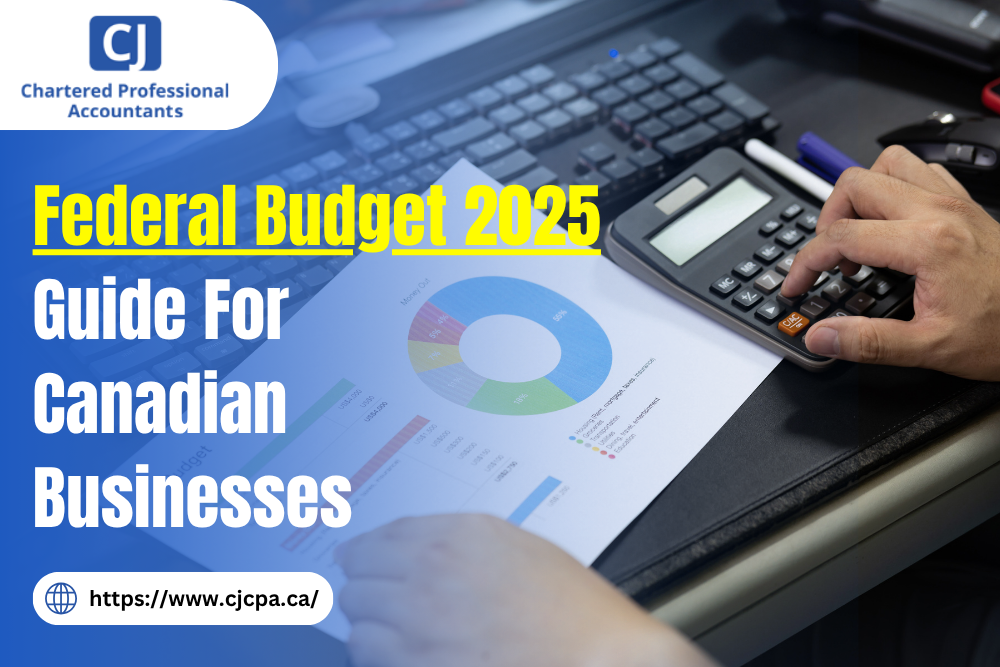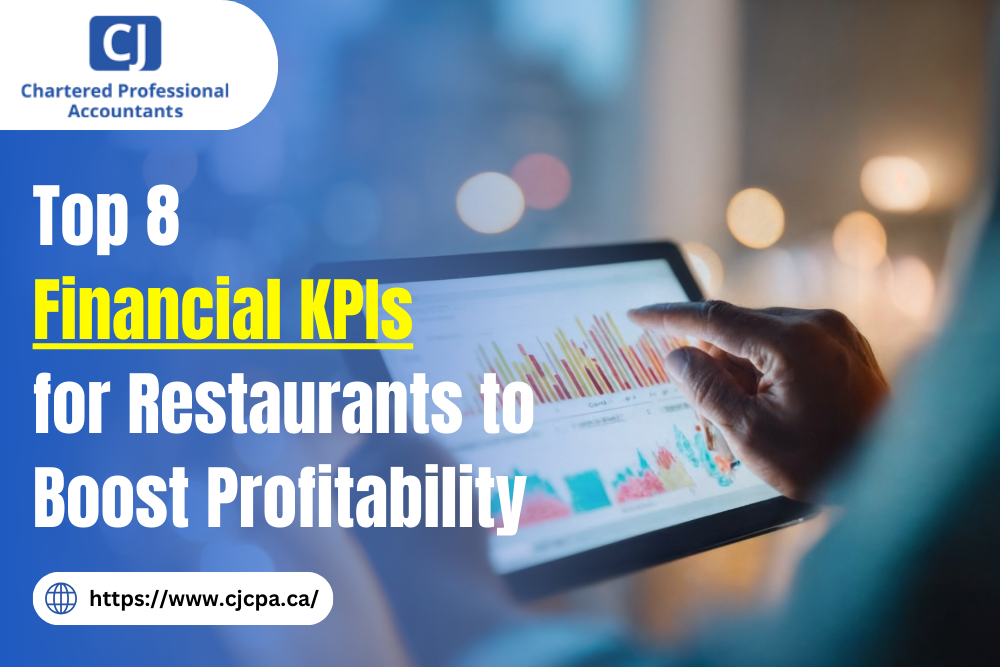Federal Budget 2025: What It Means for Canadian Businesses
Stay updated with current accounting standards, business compliance, tax preparation tips, and latest news.

18 Nov 2025
A Budget for Growth and Discipline
The Federal Budget 2025 aims to strike a balance between economic growth and fiscal discipline, focusing on investments that drive productivity while managing government spending responsibly. The government has announced $32.5 billion in new spending over the next five years, targeted toward clean energy, housing, innovation and national security. Alongside this, it plans to achieve $60 billion in savings, signaling a disciplined approach to Canada’s fiscal future. For business owners and decision-makers, Federal Budget 2025 offers a mix of incentives, compliance updates and strategic opportunities. CJCPA will break down what these changes mean for your organization and how to prepare for the year ahead.Key Highlights at a Glance
Here’s a concise summary of the major announcements from Canada’s Federal Budget 2025:- Federal deficit projected at $78.3 billion for 2025–26.
- No changes to personal or corporate tax rates.
- Immediate expensing introduced for Manufacturing & Processing (M&P) buildings.
- SR&ED program modernized with expanded refundable credits.
- Clean economy tax credits extended and broadened.
- Underused Housing Tax (UHT) to be eliminated from 2025.
- Personal tax credits and automatic filing enhancements announced.
Business Tax Measures You Should Know
1. Immediate Expensing for M&P Buildings
Businesses investing in manufacturing and processing can now benefit from a 100% deduction on eligible buildings acquired after November 4, 2025, and used before 2030. This measure encourages capital investment and helps industrial builders, manufacturers and supply chain operators recover costs faster. CJCPA Insight: “If you’re planning capital investments, timing your acquisitions could maximize tax benefits. A proactive approach to asset planning can improve your after-tax returns.”2. SR&ED Enhancements
The Scientific Research & Experimental Development (SR&ED) program has been updated to provide higher refundable credits and expanded expenditure limits for Canadian-controlled private corporations (CCPCs). This change benefits R&D-driven businesses, including construction technology firms, agri-innovation startups and media production houses, making innovation more financially viable.3. Clean Economy Incentives
The Federal Budget 2025 continues to prioritize sustainability and green innovation. Several clean economy tax credits have been extended and broadened, including:- Clean Electricity Investment Tax Credit (ITC)
- Clean Technology Manufacturing ITC
- Carbon Capture, Utilization & Storage (CCUS) Credit
Compliance and Documentation Updates
GST/HST and Indirect Tax Changes
The Federal Budget 2025 introduces updates to Canada’s GST/HST and indirect tax framework:- New exemptions (e.g., osteopathic services) and telecom reverse charge mechanisms.
- Underused Housing Tax (UHT) will be repealed effective 2025, offering relief for property owners and developers.
- However, filing obligations remain for 2022–2024, so compliance remains key.
What This Means for Your Industry
Construction & Real Estate
The removal of the UHT, combined with housing and infrastructure initiatives, is expected to stimulate new projects. Developers and construction firms should reassess capital investment timelines to take advantage of expensing rules and fiscal opportunities.Logistics & Manufacturing
The Federal Budget 2025 favors productivity and innovation. Clean economy incentives and immediate expensing will drive investment in supply chain efficiency.Agriculture
The budget extends the patronage dividend deferral for agricultural cooperatives until 2030, offering sustained tax relief. Farmers and agri-cooperatives investing in clean technologies can also benefit from new sustainability-focused credits.Hospitality & Media
Stable tax rates mean greater predictability for business planning. Media production companies may gain from expanded SR&ED incentives, while hospitality operators should watch for indirect tax adjustments affecting their input costs.Small Business Measures
For small businesses, Federal Budget 2025 provides continuity and simplification:- No change in corporate tax rates, ensuring financial predictability.
- Simplified rules for Registered Disability Savings Plans (RDSPs) and Registered Education Savings Plans (RESPs), making long-term planning easier.
CJCPA’s Take: Preparing for the Year Ahead
Budget 2025 reinforces one message: strategic preparation is everything. Businesses that plan early by aligning investments, documentation, and tax positions stand to benefit the most. At CJCPA, we recommend:- Reviewing your capital investment calendar.
- Exploring SR&ED and clean economy credits for eligible activities.


